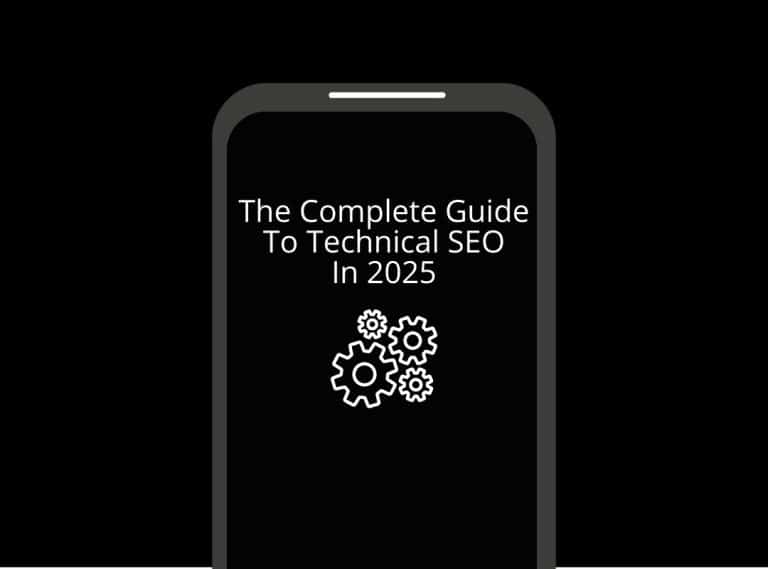Search Engine Optimisation has always been a vital part of digital marketing, but in 2025, the importance of technical SEO has reached new heights. While content and backlinks still play critical roles in determining rankings, search engines have evolved into sophisticated systems that prioritise user experience, site performance, and technical accuracy. Be sure to check out our complete guide to technical SEO to learn more about where and how to apply technical SEO to your site.
For businesses that want to remain visible in a competitive online landscape, technical SEO is no longer optional—it is the backbone of sustainable digital growth.
The Evolution of SEO in the AI Era
Over the past decade, SEO has undergone a remarkable transformation. Google’s algorithms have shifted from keyword-matching to intent-driven results powered by artificial intelligence. With tools like Google’s Search Generative Experience (SGE) reshaping how search queries are answered, the underlying technical health of a website has become even more important. AI-driven algorithms are unforgiving when it comes to slow load times, broken links, or poorly structured websites.
In 2025, technical SEO ensures that your content is not only discoverable but also interpretable by machines. Without a strong technical foundation, even the most compelling content risks being overlooked by search engines.
Why Site Speed and Performance Are Critical
User patience has declined drastically. Research shows that most users expect a website to load in under two seconds, and even a slight delay can increase bounce rates. Search engines are fully aware of this behavior and use site performance as a key ranking factor.
In 2025, mobile-first indexing and Core Web Vitals have made site speed optimisation more essential than ever. Websites that fail to deliver fast-loading, responsive experiences risk losing both rankings and revenue. Technical SEO practices such as image compression, code minimisation, and server optimisation are no longer enhancements—they are requirements for survival in competitive markets.
The Role of Mobile-First Indexing
Mobile usage dominates online activity, with most users accessing websites through smartphones and tablets. Recognising this trend, Google fully embraced mobile-first indexing, meaning that the mobile version of a site is the primary version considered for ranking.
For businesses in 2025, technical SEO ensures that mobile users enjoy a seamless experience. A responsive design, optimised navigation, and properly structured content determine whether a site appears on the first page of search results or gets buried beneath competitors.
Structured Data and the Rise of Rich Results
Search results are no longer simple lists of blue links. Instead, users encounter interactive elements such as featured snippets, product carousels, and knowledge panels. Structured data, implemented through schema markup, powers these enhanced search results.
In 2025, failing to use structured data is equivalent to leaving money on the table. By embedding structured information about products, reviews, events, and services, businesses can increase their visibility and click-through rates. Technical SEO ensures that search engines understand your site’s context, making your content eligible for these high-value placements.
Security and Trust Signals
Online security has always mattered, but in today’s landscape of frequent cyber threats, it plays an even greater role in SEO. Search engines prioritise websites that use HTTPS encryption, provide clear privacy policies, and safeguard user data.
Technical SEO encompasses these trust-building signals, ensuring that a website not only meets ranking criteria but also reassures visitors. In an age where consumers are increasingly cautious, secure and technically compliant websites enjoy higher engagement and brand loyalty.
The Challenge of Crawling and Indexing
One of the most overlooked aspects of SEO is ensuring that search engines can efficiently crawl and index a website. Technical SEO addresses this by optimising XML sitemaps, robots.txt files, and internal linking structures.
Search engines are more selective about what they index. Websites with duplicate content, broken redirects, or poor architecture risk being partially or incorrectly indexed. Technical SEO provides the clarity and structure needed to guide crawlers, ensuring that important pages receive the visibility they deserve.
Adapting to Voice and Visual Search
The way people search has changed dramatically. Voice search and visual search tools like Google Lens have gained significant traction. These technologies demand a new layer of technical readiness.
For voice search, websites must be optimised for conversational queries and structured in a way that provides direct, concise answers. For visual search, image optimisation—including alt attributes, compression, and schema—becomes crucial. Technical SEO makes these adaptations possible, keeping businesses aligned with evolving search trends.
Sustainability and the Green Web
A growing conversation in 2025 is the environmental impact of digital infrastructure. Large, bloated websites consume more energy, leading to increased carbon footprints. Search engines are beginning to reward efficient, eco-friendly websites with better rankings.
Technical SEO contributes to digital sustainability by streamlining website code, reducing unnecessary scripts, and improving server efficiency. Businesses that embrace green technical practices not only appeal to eco-conscious consumers but also gain a competitive SEO advantage.
Why Businesses Can’t Ignore Technical SEO in 2025
Businesses often focus heavily on content creation and marketing campaigns while neglecting the technical foundation of their websites. However, in 2025, technical SEO determines whether those campaigns ever reach their intended audience.
A poorly optimised site may still receive traffic through paid ads, but its long-term organic visibility will decline. In contrast, a business that invests in technical SEO creates a robust, future-proof platform that supports all other digital marketing efforts.
Technical SEO in 2025 is more than just behind-the-scenes optimisation—it is a strategic necessity for businesses that want to thrive in an increasingly complex digital ecosystem. From speed and mobile-first indexing to structured data and sustainable web practices, every technical detail contributes to visibility, trust, and growth.
Ignoring technical SEO is no longer an option. As search engines continue to evolve, only businesses that prioritise technical excellence will enjoy consistent rankings, higher traffic, and stronger customer trust. In a world where competition is fierce and user expectations are sky-high, technical SEO is the foundation upon which digital success is built.




